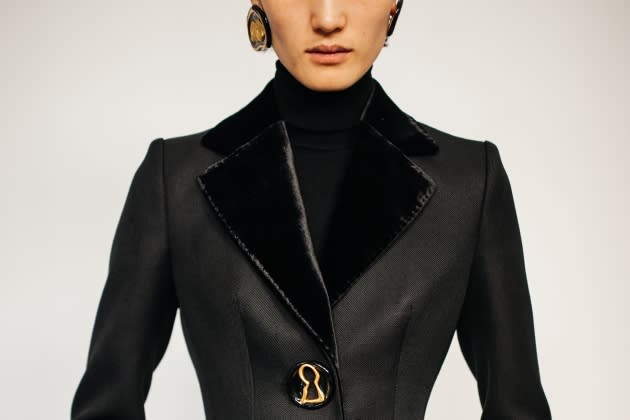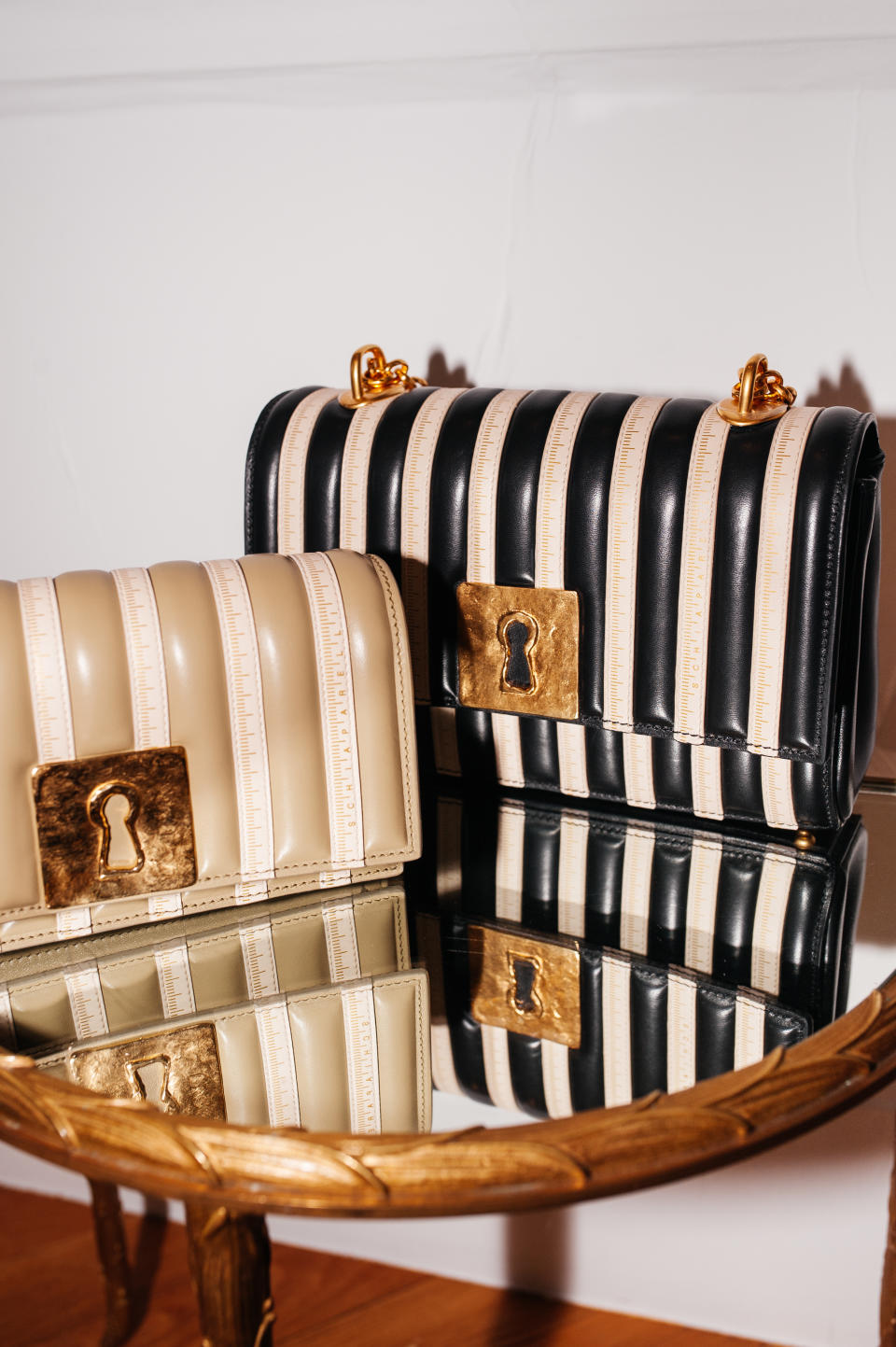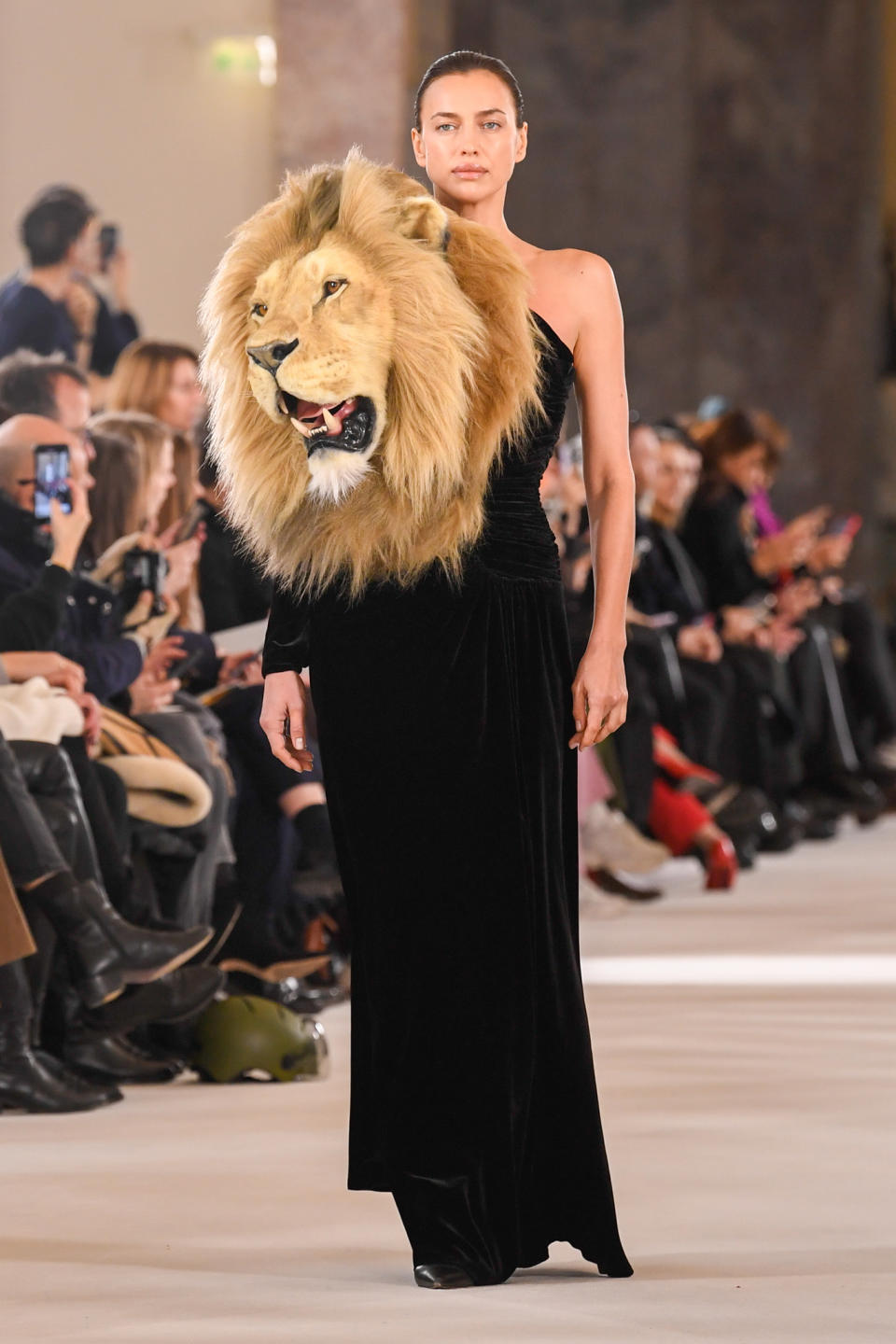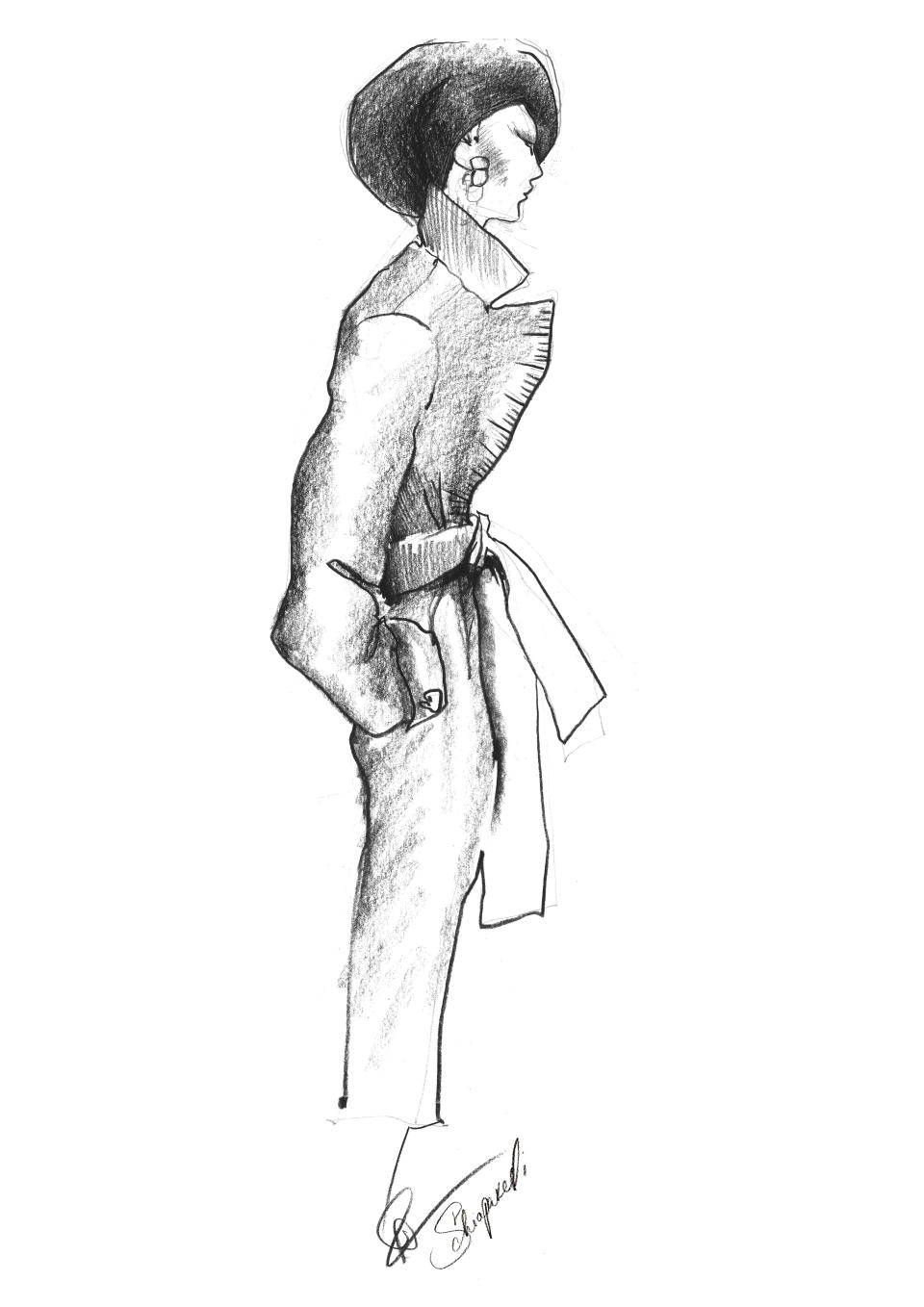EXCLUSIVE: Daniel Roseberry Addresses Animal Head Controversy Ahead of Schiaparelli Ready-to-wear Runway Debut

PARIS — One month after the controversy over its haute couture collection featuring replicas of animal heads, Schiaparelli is back in the spotlight.
The heritage house on Thursday will stage the first runway show for its ready-to-wear collection during Paris Fashion Week, marking another milestone in its revival since it was acquired by Italian entrepreneur Diego Della Valle in 2012.
More from WWD
Central to its current growth trajectory is creative director Daniel Roseberry, who has ignited the brand with his red-carpet designs for the likes of Beyoncé, Lady Gaga and Bella Hadid. Now he’s hoping to turbocharge its ready-to-wear and accessories business, capitalizing on Schiaparelli’s retail expansion, including the opening of a shop-in-shop at Harrods in London.
“This isn’t show one, this is show zero. It’s like the foundation,” he told WWD in an exclusive interview at the brand’s headquarters on Place Vendôme in Paris. “I really want people to leave knowing what the Schiaparelli wardrobe is and wanting it all.”
Since his appointment in 2019, the designer has steadily expanded the offering, which now spans tailoring, knitwear, denim, leather and shearling and eveningwear. Schiaparelli is launching production for footwear, with styles including leather ankle boots with its signature gold toe caps, which were previously only available in made-to-order versions.

And it is expanding its thriving handbag line with new styles including the Schiap, which is embossed with stripes resembling measuring tape, in a nod to the house’s signature fragrance Shocking, which launched in 1937 with a bottle shaped like a dressmaker’s mannequin.
“We’ve been building the collection steadily over the past three years, so it feels like a good moment to present something that is deeply chic, hyper exclusive. This isn’t Zara for rich people,” Roseberry said of the lineup, which will be unveiled at 7 p.m. in the gilded reception rooms of the neighboring Hôtel d’Évreux.
Indeed, there are no plans to lower the price points of the collection, which range from 1,750 euros for an intarsia bow sweater, inspired by founder Elsa Schiaparelli’s debut collection in 1927, to 6,900 euros for the ivory jacket with ear-shaped gold hardware worn by Camille Razat in the Netflix series “Emily in Paris” — and can rise to 27,000 euros for an embroidered caftan.
“From our clientele, there’s no desire for something that feels more attainable at this point. I think that people want to feel like they’re getting something extraordinary,” Roseberry said.
Nor does the Texan-born designer plan to tone down his Surrealism-inspired aesthetic. Addressing for the first time the furor triggered by his outfits featuring eerily realistic replicas of a snow leopard, a lion and a wolf, he said the designs, inspired by Dante’s “Inferno,” were meant to be conversation starters.

“I wasn’t surprised by the amount of buzz,” he confessed. “We don’t have a marketing budget, we don’t pay influencers to wear our bags, we don’t advertise, but still there’s an expectation that I have to compete with a $15 billion brand, and I’m gonna play any card that I can to kind of dominate the narrative.”
However, he didn’t anticipate the virulence of the backlash, with critics accusing the house of glamorizing trophy hunting. “I knew the animals were going to get a strong reaction. The amount of hatred and negativity and anger, specifically from people sitting in the cheap seats of Instagram and all that kind of stuff, was a surprise,” Roseberry said.
In the wake of the show, the house rolled out content on social platforms showing how an artist based in Israel sculpted the heads out of foam and resin, before embellishing them with faux fur and hand painting.
Coming on the heels of the controversy over Balenciaga’s holiday campaign featuring children posing alongside handbags shaped like stuffed bears dressed in bondage gear, the incident illustrated the pitfalls facing luxury brands in the social media age — though Roseberry said he and his teams were certain they had done nothing wrong.
“The intention behind it was not to provoke anger, it was to glorify and capture, try and mimic something that beautiful in reality, and so I was emotionally OK, because I knew that the intention behind it was pure. And it’s so funny, the artist who made them is a vegan. Like, some people got it so wrong,” he mused.
Nonetheless, it made him aware that there is now a global audience for his work.
“Couture used to be something that was so rarefied and presented to an extremely select few people who were experts in clothing and were there for the art of it. And now couture is something that is presented on the mass level of everything else and it’s impossible to control the narrative from the people who are sitting in the cheap seats who have a huge megaphone now,” Roseberry said.
“So many people reached out after that, mega famous people who have dealt with their fair share of that kind of hatred and anger, to just say, ‘You did nothing wrong. This is going to happen anytime that you put something beautiful and strong out into the world.’ And it was really encouraging on that level,” he added.

He’s confident that the uproar will have no lasting negative impact, although the house is consciously avoiding any extreme statements for the ready-to-wear show.
“We’re not trying to break the internet with this collection. It’s more a collection for clients, inspired by the clients, and I want there to be something very cozy and natural about it too, and very sensual. It’s not as much of a performance as the couture,” Roseberry explained.
Grounded in black, it will feature everything from a ruched evening gown with a keyhole detail at the waist to intarsia knitwear with satin bone accents at the ribs, and oversize puffer jackets adorned with the brand’s signature enameled bijou buttons. Tailoring includes a supremely chic black jacket with a curved hem that is another spinoff of an archival design.
“It was really about going back to the roots of the way that Elsa dressed herself,” he said, noting that he was inspired by an image of the designer in a white denim smock. “We want to make sure it doesn’t feel like the sad sister of couture. It really needs to stand on its own, have a different energy to it, like a different vibe that’s a bit more sporty as well, which I’m really into.”
In a cheeky nod to the spring couture show, he’s also included a chubby animal print coat made with tufts of silk thread.
Roseberry said his resolve was strengthened by the documentary series “Kingdom of Dreams,” which describes how French luxury magnates Bernard Arnault and François Pinault built their empires with the help of talented and occasionally provocative designers such as John Galliano, Alexander McQueen, Marc Jacobs and Tom Ford.
“It was so inspiring for me because those designers in that period, they could do things that were bold, and I know not all of it has aged well and there were controversies that were merited, for sure. But there were big swings taken and I think the risk from something like the animal backlash is that we would start to censor ourselves in advance,” he remarked.
“It left me super charged with a desire to just keep going, keep pushing,” Roseberry said of watching the miniseries. “If you create according to purely what you hope won’t be a scandal, I mean, I just — I can’t do that.”
Best of WWD


